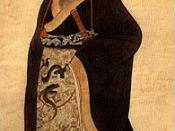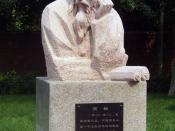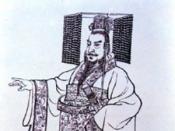The fist emperor of the Qin Dynasty did an excellent job of creating a united empire. Prior to the Qin Dynasty, the people were not united into on large state, and there were usually much opposition to the emperor, as well as conflicts about who was actually in charge. The first Qin Emperor had all of this under control, through Legalism he took over most Chinese states, and united them under one centralized state. This time there was no conflict about who was in charge. The place where he went wrong was his continuous use of Legalism throughout his reign. The most efficient way to keep his power would have been to realize that the people of his state did not need to be controlled through Legalism. The people of China needed to be respected as people, and not just as a tool of the state and of the military.
He should have transgressed from Legalism alone to a mixture of Confucianism, Daoism, Militarism as well as some of the Legalist points of view.
The best way to understand why a mixture of these four schools would have been the best way to run the empire is to know three main points about each, and what aspects could have been best for the country as a whole. So, the first thing to know about Legalism is that the states interests are put ahead of all human and moral concerns.
"The six parasites are: rites and music, odes and history, cultivation and goodness, filial devotion and brotherly love, sincerity and trustworthiness, uprightness and integrity, humanness and rightness, criticism of the army and being ashamed of fighting..."
One way in which the Emperor actually accomplished this was to actually burn all of the books supporting Confucianism and Daoism. After the books...


